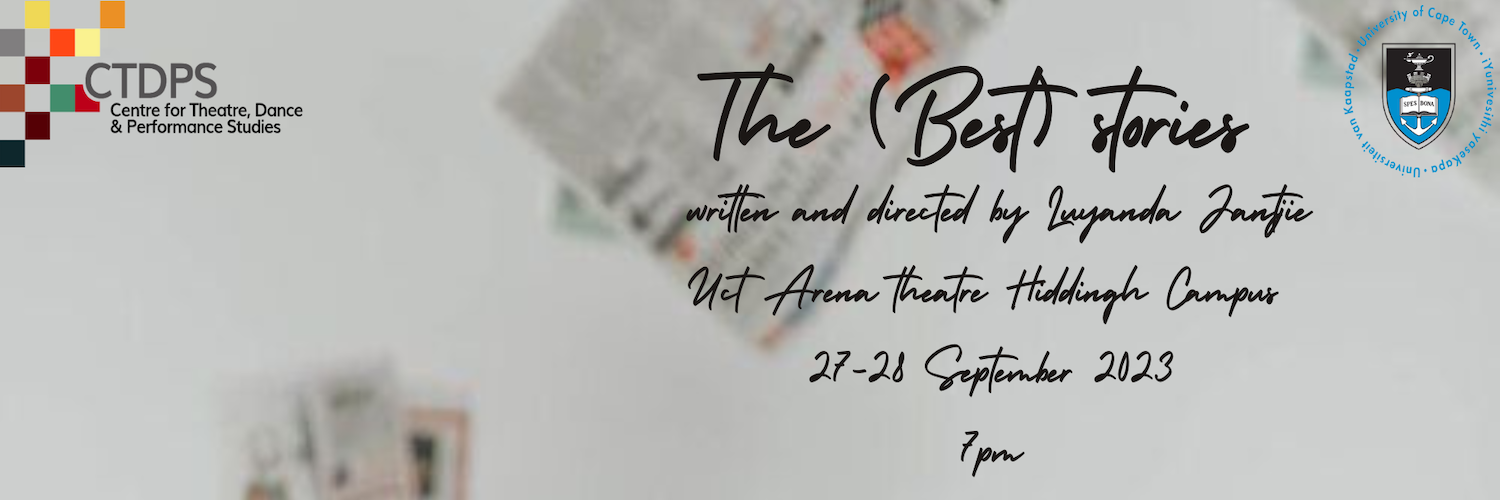The (Best) Stories by Luyanda Jantjies


The CTDPS is proud to present The (Best) Stories, written and directed by Honours student, Luyanda Jantjies.
An exploration of black joy, love and spirituality and what all of these things mean within a South African context when not all black bodies have the privilege of even considering these things. Physical theatre acts a medium between these two realities in an attempt to tell different stories but the aim is also to tell the best stories.
Bookings: www.quicket.co.za
Director’s note
"‘The (best) stories’ started out as ‘The (best)er stories’. Like the rest of South Africa I was truly invested in the unfolding of the Thabo Bester, prison escapee story and it’s all I wanted to write about. The sensationalism of the story came to a slow stop and the excitement and buzz around the unbelievable story died down. When the media started reporting less and less on the matter, I had also realised that making Thabo Bester the pivotal point of the story I wanted to write did not feel authentic any more. A visit to Zeitz Mocca was when I decided to drop the ‘er’ in the title.
“When We See Us” at Zeitz Mocca considers the many facets of being black, such as joy, repose, the everyday, spirituality, sensuality and triumph and emancipation. It was moving to see black people in art portrayed as individuals who are worthy of exploring all of those facets and I wanted to carry this portrayal into another medium, theatre.
Black joy was set out to be the last scene of the play but it was challenging to write about, I didn’t know what that looked like. I knew what it looked like in short bursts, but I was unsure as to what a lifetime of black joy entailed so I decided to not write about it, so as to remain authentic to the piece as a whole and allow other facets, such as spirituality and love to become the starting point for what black joy might entail.
Physical theatre has been the medium I have preferred to work in since my second year of undergraduate studies at Stellenbosch University and plays a crucial role in this production, it acts as a translator and in this case, a translator for black bodies, expressing years of feelings we’ve been unable to articulate. My performers have played a huge role in helping me express what I could not fully articulate, and I believe together we have created a piece that speaks to many facets of being a black body in South Africa". - Luyanda Jantjies